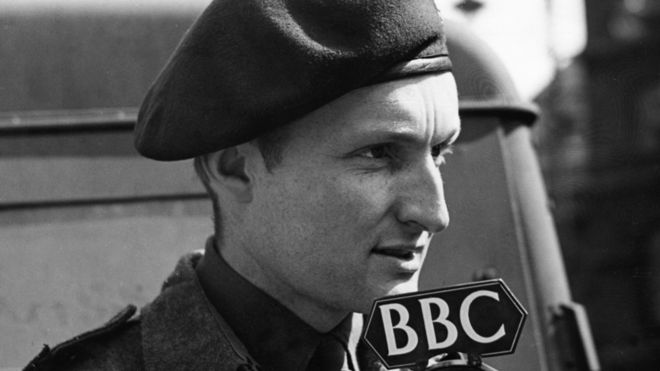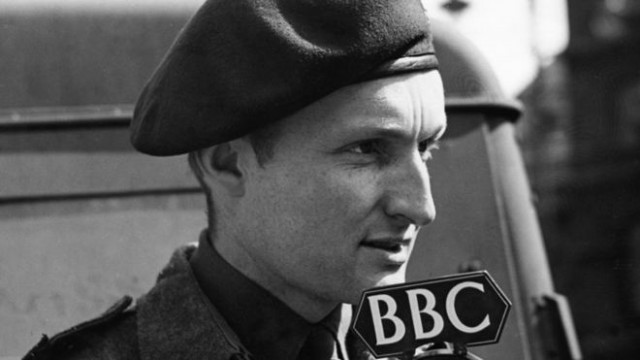The daughter of a BBC reporter who was killed in action during World War Two is now looking back and remembering her father.
Michele Byam’s father was Guy Byam, who was one of two reporters at the BBC during the war who lost their lives.
Michele never knew her father but 70 years after the end of World War Two she is trying to put the pieces together and carve a picture of who are father was.
Michele has a scrapbook full of documents and photographs that belonged to her father and was put together by her mother after he died. Today, the scrapbook is old, tattered and yellowing, but still contains the memories that Michele doesn’t want to forget.
The scrapbook contains letters, invitations and tiny black and white photos, which date back to Guy’s burgeoning early career as a reporter and as a young enlister with the Royal Navy Volunteer Reserve.
The book contains two telegrams from 1940, just over a week after the HMS Jervis Bay, upon which Guy had been serving, was sunk in the North Atlantic by the Germans.
Michele’s mother must have been losing hope by that time, after being told that the ship had sunk, but the two telegrams confirmed that Guy was alive and well. One was from the Navy informing her that Guy was safe and well, while the other was from Guy himself saying that he got wet but was alive and well and would be home soon.
The telegrams were short and conveyed the facts, but Guy must have experienced terrible horror in the North Atlantic when his ship sank. With just over 250 crew on-board, the HMS Jervis Bay had just 68 survivors after it sank. Guy was injured and ended up losing the sight in one eye, but he survived by swimming through the ship’s huge oil slick towards a nearby Swedish ship that was helping to rescue the sailors, the BBC News reports.
Because of his loss of sight, Guy was discharged from the Navy, but he was only 22 and so got stuck into a job in engineering. But he desperately wanted to become a journalist and went on to report throughout Europe for the BBC.
On 3 February 1945 Guy and the nine-man American crew of the Rose of York took part in a large daylight raid on Berlin. Guy was recording to disc on one of the BBC’s so-called midget recorders of the era, which resembled heavy record-players.
It’s thought German anti-aircraft guns knocked out two of the aircraft’s engines. The pilot radioed that he hoped to get back to Britain but the Rose of York and the men in it were never seen again. It’s likely they crashed into the North Sea.
Michele was just a few months old and Guy’s body was never recovered, so Michele had always held out hope that he would one day return home, but he never did.

